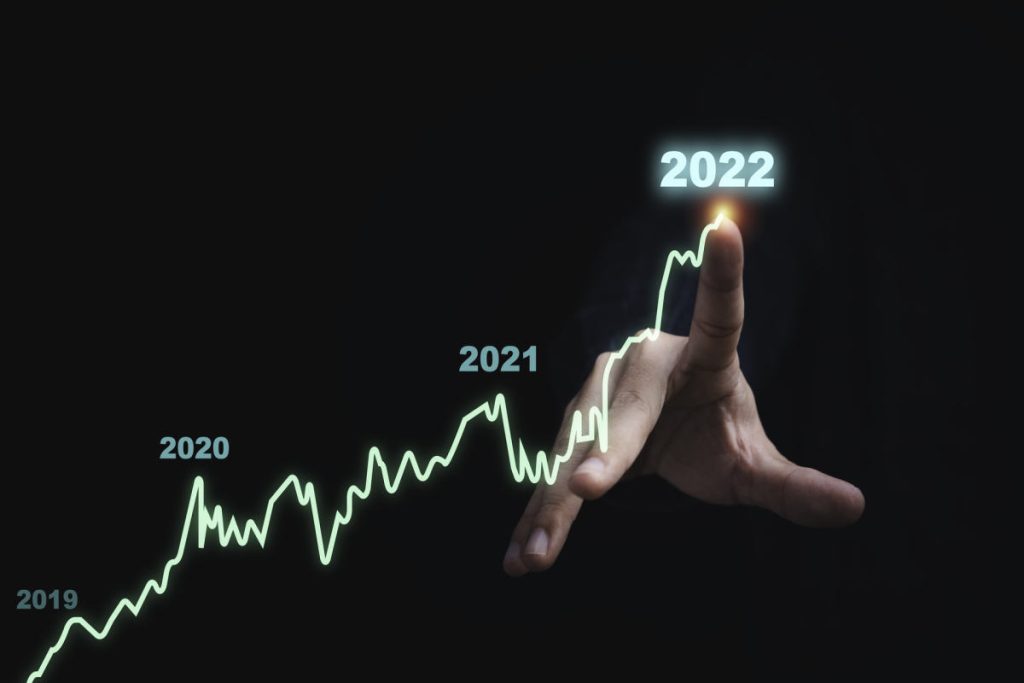Forex trading market sentiment. Forex trading market sentiment is the overall attitude of Forex traders regarding the recent gyrations of the forex currency markets.
The forex trading market sentiment is a measurement of the attitude of traders. It can be used to gauge which way prices are likely to go next. The indicator might be a simple method and it is often used by currency speculators to predict price behavior.
Different forex traders and investors have different indicators of studying the foreign exchange market sentiment, so I am going to provide an updated review on some of the most popular indicators.
Market sentiment is ultimately analysed based on the attitudes of buyers and sellers in the forex trading market. The said market condition is solely based on the interactions happening on a daily basis between two or more traders involved in forex trading.
Good market sentiment leads to higher demand for a specific currency, which results in higher prices for that currency.
Market sentiment is also an important concept in financial theory, behavioural finance, technical analysis and behavioral economics, as well as (some would argue) most performance-related fields such as professional sports or entertainment.
Fundamentally speaking, sentiment is a reflection upon the expectations that traders have regarding an asset class towards the future. As a novice foreign exchange trader, you may feel that the market is out to get you.
The best thing to do if this happens is to realize that the market moves randomly and it’s not personal. The market will always have a winner and a loser so don’t let it get to you.
If you stick around for long enough, you’ll realise that many of the traders in the position before you have lost money, just like the one after you will succeed. You are going to be a winner just not yet.
Points to jot down
- Forex trading market sentiment
- What is market sentiment in forex?
- Is market sentiment a good indicator?
- Do market sentiment help traders?

Forex trading market sentiment
Market sentiment is the overall emotional tone of investors when trading in the Forex market. It can be positive or negative. In Forex trading, there are many different types of sentiments that affect your trading and investment decisions.
Positive sentiment
A positive sentiment means that investors are optimistic about a certain asset and expect it to increase in price. For example, if there is an economic news that is expected to increase the value of a particular currency, then people will be bullish on it and buy it for future gains.
Investors who want to make short-term profits from a currency’s movement will buy as much as they can because they expect the price to increase very soon. This creates what is known as “buy pressure” on that currency’s price causing it to go up even further.
Negative sentiment
A negative sentiment occurs when investors are pessimistic about an asset’s future performance and sell them off before they lose more money. For example, if there is an economic news that is expected to decrease the value of a particular currency.
Then people will be bearish on it and sell it off before they lose any more money by waiting too long before selling off their shares at lower prices than they bought them at. This creates what is known as a negative sentiment.
A positive sentiment occurs when investors are optimistic about an asset’s future performance and buy them up before they gain more money. For example, if there is an economic news that is expected to increase the value of a particular currency.
Then people will be bullish on it and buy it up before they miss out on gaining more money by waiting too long before buying up their shares at higher prices than they sold them at. This creates what is known as a positive sentiment.
Read more article: Foreign Exchange Market Definition

What is market sentiment in forex?
Market sentiment is the general feeling that traders have about the market. It can be positive or negative, and it can swing back and forth.
The market sentiment is based on many factors, such as economic reports, news about politics and central banks’ interest rates decisions.
Positive market sentiment means that traders are optimistic about the future of a currency pair and expect it to gain in value. A negative market sentiment means that they believe the pair will fall in value.
Market sentiment can also be measured by looking at some technical indicators like the Relative Strength Index (RSI) or Bollinger Bands (BB).
Market sentiment is a term used to describe the collective view of investors about the future direction of a security, commodity or currency.
An investor’s attitude toward risk can be influenced by factors such as economic news, political events and other factors. When traders are optimistic about the future direction of an asset, they are said to be in a bullish market sentiment.
Similarly, when traders are pessimistic about the future direction of an asset, they are said to be in a bearish market sentiment.
The overall market sentiment can be measured by looking at some key indicators such as futures prices and options premiums, yield curves and technical indicators like MACD or RSI (relative strength index).
The term “bearish” and “bullish” refer to market sentiment that predicts lower or higher prices for an investment vehicle in the near term.
Market sentiment is based on the analysis of various factors that influence trading activity, such as news events or economic indicators.
Sentiment is important because it helps us understand if there is more demand for a currency than supply, which will cause its price to rise. Or vice versa – if there is an excess supply of a currency, its value will fall.
For example, if there’s good news about a country’s economy and its currency strengthens against another currency, it means that people think that country’s economy is doing well and has strong fundamentals.
Read more article: Learn Forex Trading Step by Step

Is market sentiment a good indicator?
Many investors believe that market sentiment can be used as a good indicator of the direction of the market. They think that when investors are bullish, they will buy more stocks, and when they are bearish, there will be less buying and more selling.
Market sentiment may also be thought of as the collective thinking or attitude of investors toward the stock market and their view on its future direction.
The theory behind this belief is that if many investors are bullish, then they would buy more stocks. As a result, prices will increase until there is no one left to buy at higher prices.
At this point, there is no one left to sell to at lower prices so prices will continue to go up until there is no one left who wants to sell at all! The reverse happens when there are more sellers than buyers:
sellers have no place to offload their stocks so they begin lowering their asking prices until some buyers come along or until both sides agree on a price that works for both parties involved in the transaction.
In either scenario, we end up with a situation where everyone involved has lost money because the price paid was higher than what could have been achieved if everyone had simply waited until now before trading again.
From a historical perspective, market sentiment has been a very good indicator of the direction of stocks. This is true for both equity and fixed-income markets. So what is market sentiment?
Market sentiment is the collective opinion of investors on financial markets, as reflected in such factors as stock prices, trading volume, volatility and returns.
It can be measured by looking at indicators such as: The price/earnings (P/E) ratio; The yield curve; The price-to-book ratio; And the put/call ratio.
In general, when there is a lot of fear or panic in the market, the P/E ratio gets lower because investors are buying fewer shares and paying less for them which results in a lower price per share.
On the other hand, when there is optimism about future growth prospects for a company or industry (or economy), investors are willing to pay more per share which results in a higher price per share.

Do market sentiment help traders?
At first glance, market sentiment seems to be a relatively simple concept. It simply refers to how investors feel about the future of the market or company. But what exactly is market sentiment? How does it affect traders and investors? And how can you use it to your advantage?
Market sentiment is a term used by traders and investors to describe the general feeling about a particular stock or market.
Sentiment can be measured by asking large numbers of people what they think of a particular stock or market, or it can be measured by looking at how much money people are investing in particular stocks and markets.
Sentiment can also be tracked using technical indicators. For example, if a large number of traders are selling a certain stock, that’s considered bearish sentiment.
If there is an increase in short interest on a particular stock, then that’s considered bearishment as well. Market sentiment can help you make better trading decisions because it allows you to gauge how other traders feel about various assets.
If you see that many traders are selling a certain asset (a sign of bearishness), then this may indicate that the price has reached its peak and may soon fall back down again.
It is important to understand that market sentiment is not a factor which can be measured directly. However, there are various methods of assessing it by looking at various indicators such as:
1) Volume and price movement of individual stocks or indices;
2) Sentiment indicators such as put/call ratios; and
3) News reports which reflect public opinion about an issue or company.

Have in mind
The Forex market is the world’s largest source for global currency exchange. It allows individuals to buy, store and transfer various currencies across the globe.
Unfortunately, this international nature can make it difficult for individual traders to obtain information about the market and its past movements.
The sentiment indicator is derived by comparing the number of long and short positions held in the market. A large number of longs compared to shorts suggests that bulls (traders with long positions).
Are in control and will likely continue to buy at lower levels since they feel that market is heading higher, while bears have given up hope of the price falling further and are now exiting the market, leaving only a small number of shorts.
At this point the resulting net sentiment could be neutral or bullish depending on whether more premiums were collected for sell orders (in case of longs) or sold for buy orders (in case of shorts).
If the resulting net sentiment is bullish then it signals a turnaround in price direction as bears have given up hope completely and have closed out their sell positions.
Forex market sentiments are entirely driven on trading psychology. Traders can play the forex market by understanding the dominant mindset when it comes to making investment decisions.
To conclude, the Forex trading market is highly unregulated with a relatively small overall market capitalization relative to that of other financial markets.
It is therefore subject to many influences and sensitivities which are unique and cannot be covered or controlled sufficiently by centralized policy.
At the same time, Forex traders should take into account that there is always an inherent uncertainty in the Forex market due to its speculative nature, and they should only invest based on their own research.
Read more article: Foreign Exchange Market Today
Never Loss While Trading Forex Ever Again Try TCC
Free Download Forex Gain Formula











Leave a Reply